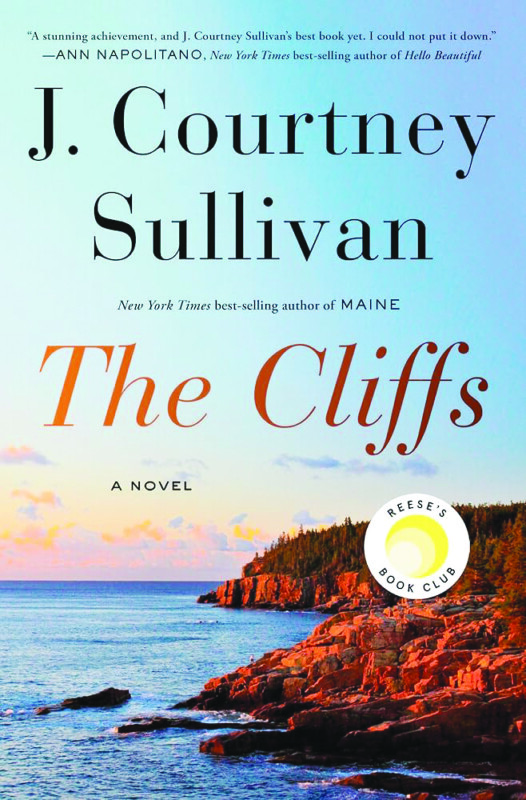Burn,by Peter Heller (Knopf, 291 pages)
Jess and Storey have been friends since they were kids growing up in a small town in southern Vermont. As adults, they maintained their friendship, in part by spending several weeks each year hunting off the grid. In fact, it was those trips that killed Jess’s marriage. His wife wasn’t happy with his lengthy absences to hunt and fish when he couldn’t make time to vacation with her.
Jess is still mourning the loss of his wife and dog, and clutching the prayer stone that Jan had once given him, when he joins Storey to hunt in north-central Maine one September. But his personal tragedy soon shrinks in the middle of a bigger one.
When the men try to return to civilization after more than a week off the grid, they find that civilization, as they know it, has vanished — the bridge they’d previously crossed blown up, no cell service, towns incinerated, the residents missing except for a few corpses.The second Civil War, it seems, has come to New England.
Burn is novelist Peter Heller’s take on a popular theme: the idea that America’s polarization could lead to secession and war, trivialized by some with the euphemism “national divorce.” There have been numerous fiction and nonfiction books exploring this theme, and a movie earlier this year.
But Burn is no made-for-Hollywood thriller that exploits the country’s tensions. It aims higher with a story that explores family, betrayal, secrets and friendship. The savage conflict is just an accelerant that elevates the stakes.
The story begins with Jess and Storey emerging from the woods to find a gory mystery: Where are the people who lived in the incinerated towns? Why were their cars torched, while boats at the marina were left untouched? And most pressing of all, who was responsible? The federal government, or militias, or a foreign invader? “Jess began to carry a stone in his gut he recognized as dread,” Heller writes.
The men, both in their late thirties, surmised that the violence was related to “secession mania” that had pitted Mainers against each other. “But no one had expected it to come to full-bore civil strife. They had discussed the risk while planning the trip and decided that what was happening in Maine was no worse than the stirrings of revolt in Idaho and the failed secession vote in Texas the year before. These were fringe minorities, vocal and passionate, but not a real threat.”
Storey — who lives in Burlington, Vermont, with his wife and two daughters — and Jess, who lives in Colorado — have no dog in this fight. But they also have no way to get out, once they realize that all the combatants seem to be shooting everyone they see on sight. Their primary problem is sheer survival as they try to figure out how to escape what seems to have become a war zone.
They scavenge food and coffee from boats, and camp deep in the woods, as they plot a way out. Storey grows increasingly worried about his family, while Jess ruminates on what he has already lost, and his teenage years, providing flashbacks into his pre-apocalypse life, in which he spent most of his time with Storey’s idyllic, warm family, feeling unloved by his own parents, who mostly seemed to care about books.
There is little time for contemplation, however, as the men have to keep moving. The danger they are in is underscored when helicopters appear without warning, firing on someone in a boat, and at one point the two friends have to fire on other men who are shooting at them; while both are experienced hunters, neither has ever shot at another human being, let alone killed one. And by means of a ham radio they come across, they are able to learn snippets of what is transpiring around them, from a Canadian broadcast in French.
All of this provides tension enough to sustain a whole book, but Heller surprises his readers with two turns of events — one in the present day, one in the past — that raise the stakes even beyond the hellscape they are navigating. The introduction of these subplots adds complexity to the men’s journey, and at one point threatens their friendship.
Full disclosure: I was already a Heller fan, having read 2012’s The Dog Stars, 2014’s The Painter and 2023’s The Last Rangers (and given each of them an A). But not every author gets better with age, and with the subject matter, I was prepared for Burn to disappoint. It did not.
An accomplished outdoorsman who grew up in New York, went to high school in Vermont and attended Dartmouth College, Heller’s writing is suffused with knowledge of nature and sport, and New England. In Burn, he uses the names of real towns, not fictional ones, which might be disconcerting to lovers of Maine, as the conflict widens. But it’s also interesting to see this sort of story, which a more predictable writer might have set in a southern state, play out where it does.
The problem with a book like Burn is that the reader is anxious to get to the end to find out what happens to the characters, but at the same time doesn’t want their story to end. Heller has not written sequels before, but Burn is deserving of one. While he delivers as satisfying an ending as possible in a story this bleak, we still want to know what happens next.
“Always leave them wanting more” is a phrase attributed to P.T. Barnum. Heller employs the tactic well. Still, I’d pay $50 cash right now for Burn 2. A
—Jennifer Graham






